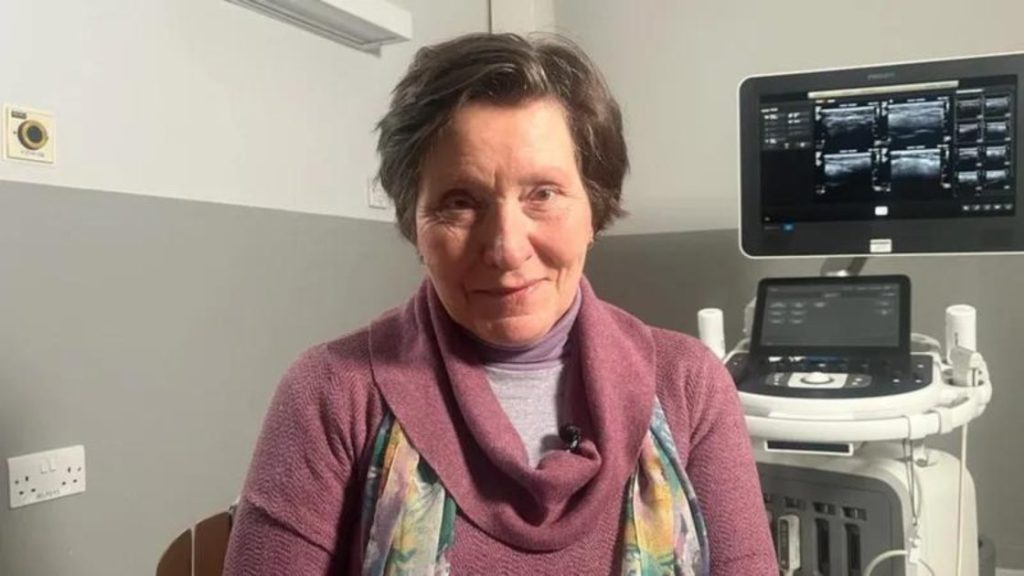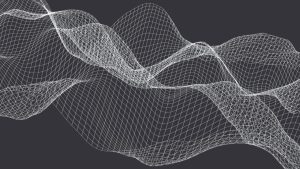Artificial intelligence has presented remarkable opportunities to reduce mistakes, aid medical staff and offer patient services around the clock. As AI tools improve, there’s increasing potential to use them extensively in interpreting medical images, X-rays, and scans, diagnosing medical issues, and planning treatments. A new development has emerged in cancer detection: using AI in the National Health Service has shown how technology can find very small signs of breast cancer that doctors might miss.
Mia, an AI tool tested with NHS doctors, looked at mammograms from over 10,000 women and found 11 cases of breast cancer that doctors hadn’t spotted. These cancers were caught very early, when they were hard to see, showing how AI can help find cancer sooner.
Barbara was one of eleven patients who benefited from Mia’s advanced detection capabilities. Her case clearly demonstrates how AI can be instrumental in saving lives. Even though human radiologists didn’t catch it, Mia spotted Barbara’s 6mm tumor early on. This meant Barbara could get surgery quickly and only needed five days of radiotherapy. And, according to radiologist, patients with breast tumors smaller than 15mm usually have a good chance of survival, with a 90% rate over the next five years.

BBC reported Barbara as saying that she was pleased the treatment was much less invasive than that of her sister and mother, who had previously also battled the disease.
As Barbara had not experienced any noticeable symptoms, her cancer may not have been detected until her next routine mammogram three years later without the assistance of the AI tool.
Mia and similar tools are expected to speed up the process of getting test results, potentially reducing the wait from 14 days to just three, as claimed by Kheiron, the developer. In the trial, Mia’s findings were always reviewed by humans. While currently, two radiologists examine each scan, there’s hope that eventually, one of them could be replaced by the AI tool, lightening the workload for each pair.
Out of nearly 10,889 women in the trial, only 81 chose not to have their scans reviewed by the AI tool, according to Dr. Gerald Lip, the clinical director of breast screening in northwest Scotland who led the project.
This shows that, AI tools, like Mia, are skilled at detecting symptoms of specific diseases if they’re trained on enough diverse data. This involves giving the program many different anonymized images of these symptoms from a wide range of people.
Mia took six years to develop and train, according to Sarah Kerruish, Chief Strategy Officer of Kheiron Medical. It operates using cloud computing power from Microsoft and was trained on “millions” of mammograms sourced from “women all over the world”.
Kerruish gave emphasis to the importance of inclusivity in developing AI for healthcare, reportedly saying, “I think the most important thing I’ve learned is that when you’re developing AI for a healthcare situation, you have to build in inclusivity from day one.
But wait a moment! Let’s not overlook Mia’s imperfections. Sure, it’s a remarkable tool, but it’s not without its flaws. One major limitation is its lack of access to patients’ medical histories. This means it might flag cysts that were already deemed harmless in previous scans.
In addition, Mia’s machine learning feature is disabled due to current health regulations that focus on the risks and biases of machine-learning algorithms at the level of input data, algorithm testing, and decision models. So, it can’t learn from its mistakes or improve over time. Each update requires a fresh review, adding to the workload.
It’s also worthy to note that the Mia trial is just an initial test in one location. Although the University of Aberdeen validated the research independently, the results haven’t undergone peer review yet.
Still, the Royal College of Radiologists acknowledges the potential of this technology. “These results are encouraging and help to highlight the exciting potential AI presents for diagnostics. There is no question that real-life clinical radiologists are essential and irreplaceable, but a clinical radiologist using insights from validated AI tools will increasingly be a formidable force in patient care,” said Dr Katharine Halliday, President of the Royal College of Radiologists.
Dr. Julie Sharp, from Cancer Research UK, stresses the crucial role of technological innovation in healthcare, especially with the growing number of cancer cases.
“More research will be needed to find the best ways to use this technology to improve outcomes for cancer patients,” she added.
Furthermore, various other healthcare-related AI trials are underway across the UK. For example, Presymptom Health is developing an AI tool to analyze blood samples for early signs of sepsis before symptoms manifest.
Mia has sparked hope among potential cancer patients; however, many of such trials are still in their infancy, awaiting published results.
- AI-Powered PCs: Overhyped Trend or Emerging Reality? - August 21, 2024
- Princeton’s AI revolutionizes fusion reactor performance - August 7, 2024
- Large language models could revolutionize finance sector within two years - March 27, 2024



